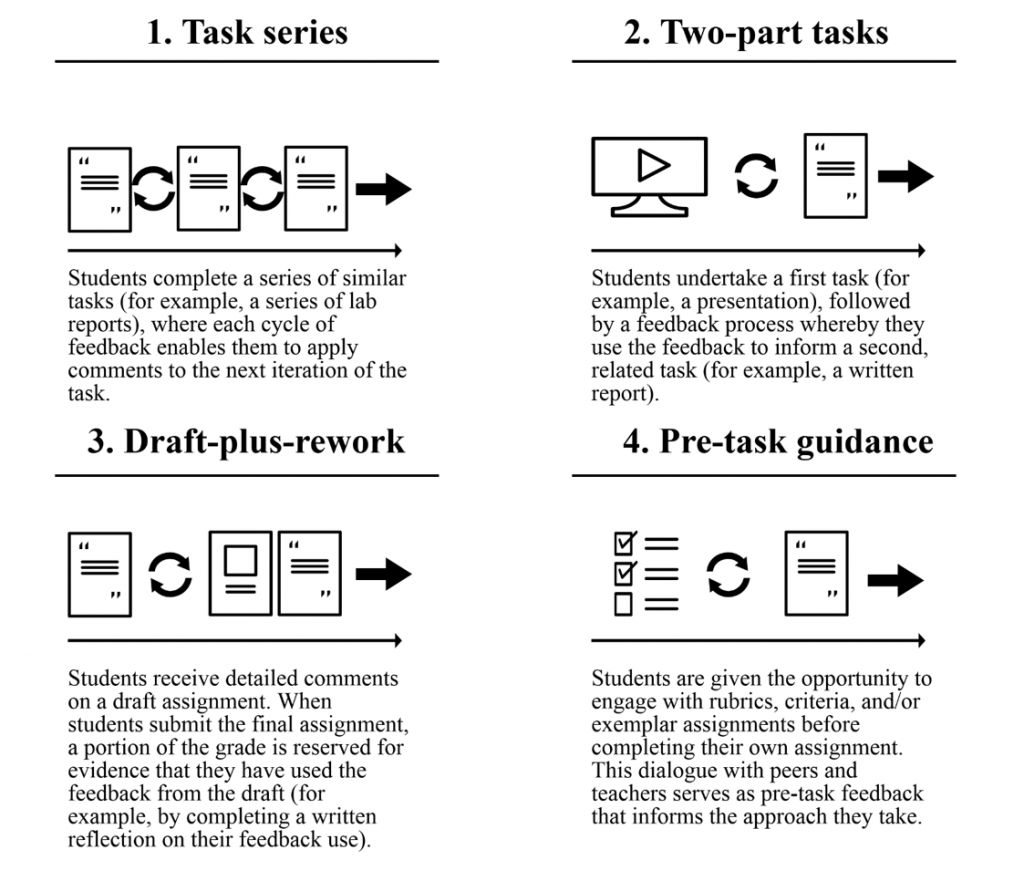In April, we had the honour to welcome Dr Naomi Winstone to our TILE meeting. I consider her as a guru in Assessment and Feedback in Higher Education. She has a vast amount of knowledge and expertise – and, more importantly – she is a brilliant speaker and science communicator. In her talk, Naomi touched on several psychological aspects when it comes to effective feedback and assessment. She highlighted that indeed there is a general lack of student engagement with feedback that is provided to them. However, instead of simply concluding that this lack of feedback uptake is due to students being lazy or not caring, she urges academic teaching staff not to jump to this conclusion. Rather, it is important to dissect the process of receiving feedback on a psychological level. But, what does that mean?
Naomi turned the tables and asked us: How do you feel about being judged on your work? Turns out, people, in most cases, feel nervous and anxious about situations where their work is being judged by other people. While constructive feedback is important, it can hurt us, even if it is well intended. Naomi – who has published many academic papers in her life – explains that she still feels sad and hurt when she receives criticism on her manuscript. Even though she knows that the feedback is well-meant and will probably enhance the quality of her manuscript. The first response to criticism is usually a negative one that needs to be overcome. From own experience, I know how it feels: A situation that creeps up at the end of each semester is the release of student evaluation of teaching. I know that there will always be a few critical comments – no matter how hard you try – and even though I have been teaching for over 10 years now, it always throws me off balance. Thus, it is understandable that students who receive feedback on various assignments a year, may occasionally skip engagement with the feedback.
Furthermore, Naomi highlighted, that when students decide to engage with feedback, they may not understand how to act upon the feedback provided: The feedback given for a specific assignment can in many cases not be used to improve the same assignment. Plus, how does feedback provided on a specific assignment inform future assignments? For these reasons, Naomi suggests that a culture change in Higher Education should take place where the student is not seen simply as the passive recipient of feedback, but rather an active agent in the feedback process. Naomi presented different ways on how this could be accomplished in Higher Education – but, I think these can be applied to secondary education as well. In the figure below, she outlined four ways that integrate formative feedback into the process of assessment and takes the student into the responsibility to take action.

What I like about these approaches is that it fosters self-regulated learning in the student by changing the nature of the assessment. This leads to better assessment, but also to better feedback uptake and engagement with the entire learning journey. Of course, these changes take time, but if lecturers and teachers tackle this one assignment at a time, it will slowly change the perspective academic staff and students have on assessment and feedback – namely, acknowledging that effective feedback and learning is a two-way rather than a one-way street.
Here are additional resources of the talk for you:
Video of the talk
Slides of the talk
Please feel free to comment below if you have additional thoughts!


Recent Comments